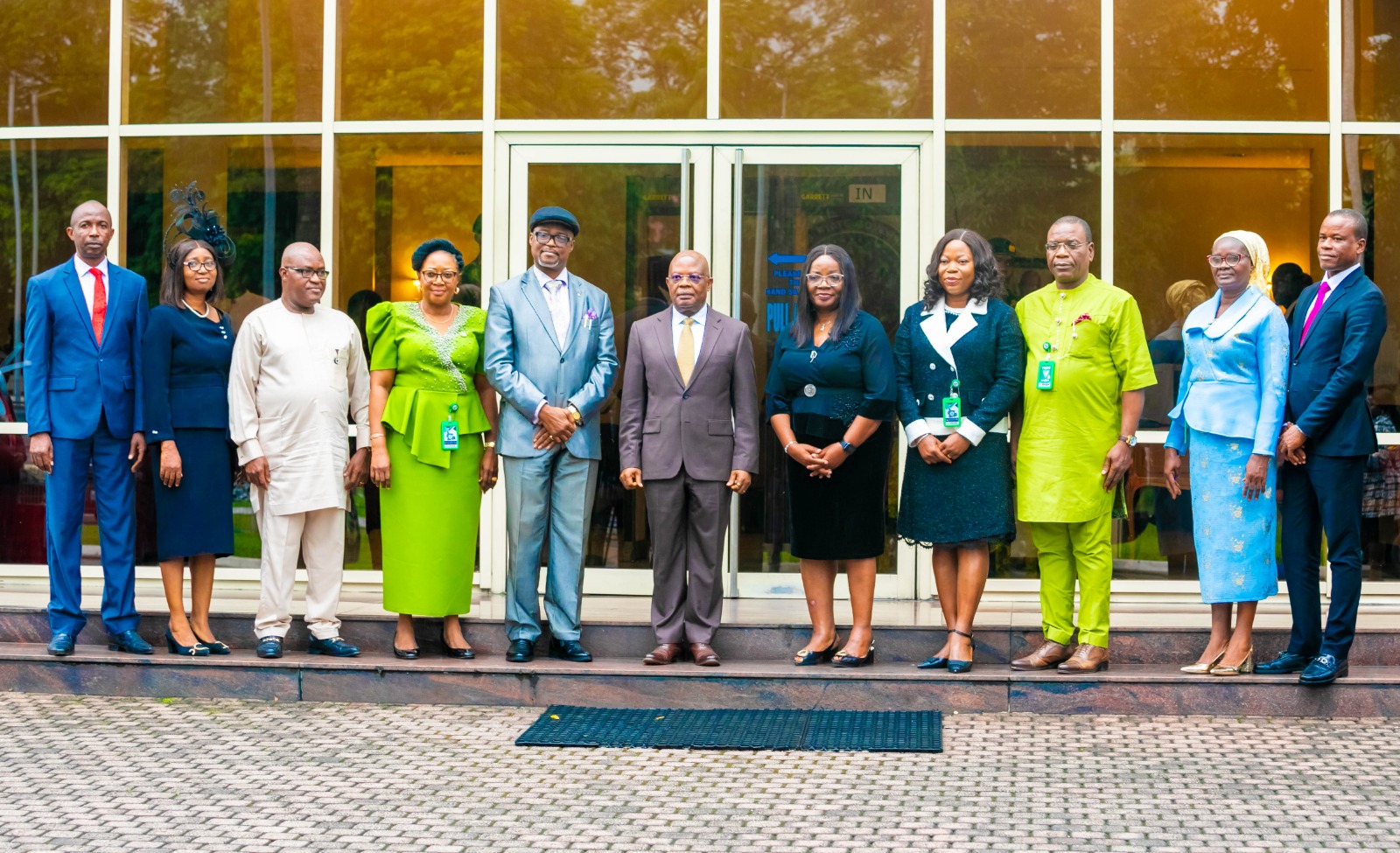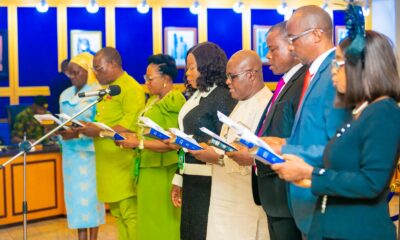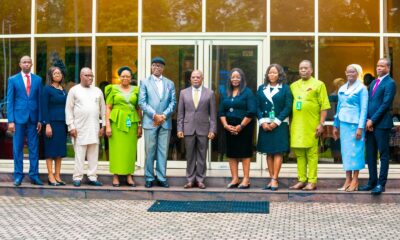Featured
Don’t Instigate Violence During Campaigns, Wike Warns Political Parties ….Bans Use Of Public Schools For Rallies Without Permission

Rivers State Governor, Chief Nyesom Wike, has enjoined political parties and candidates standing for election in 2023 in the state, to avoid acts or conduct that could instigate political tensions.
The governor has drawn the attention of all political parties and their candidates in the state to the Executive Order 21 prohibiting use of public schools for rallies without permission from the state commissioner for education that has been signed into law.
Wike gave the advice in a state-wide broadcast, last Friday, in which he emphasised that the prevailing atmosphere of peace and security in the state will not be compromised.
He noted that as the campaign for the 2023 general election begins, political parties and their candidates need to be reminded of their legal responsibility to foster an enabling civic environment for peaceful campaigns and elections.
“We clearly respect and guarantee the rights of all the political parties, their candidates and their supporters to unfettered political campaigning throughout the state.
“We cherish this sustained atmosphere of peace and security in our state and would therefore count on the cooperation of the political parties and their candidates to ensure that Rivers State remains peaceful and secure for everyone to go about with his or her legitimate endeavours.”
Wike pointed out that as a government, enormous time, effort, and resources have been spent to achieve and sustain the prevailing peace and security across the state.
He, however, stated that his administration is conscious of the supreme duty to protect lives and property in Rivers State.
The governor expressed the need why the forthcoming campaigns should not be characterised by violence, but carried out within legal limits, coupled with a high sense of responsibility.
“Consequently, we will neither allow nor allow any political party, their affiliates, candidates, and their supporters to violate the prevailing peace and security in the state under any political pretext.
“Let me, therefore, enjoin all the political parties and candidates standing in the 2023 general election to avoid any act or conduct that could instigate political tensions and ignite flames of election violence in the state or any part thereof.”
Wike drew the attention of all political parties and their candidates to the Executive Order 21 that has been signed into law.
He said the order specifically prohibits the use of public-school buildings, structures for and premises for political rallies without prior permission from the commissioner for education.
“For the avoidance of doubt, the use of public school buildings, structures and premises for political rallies is lawful only when there is compliance with the following conditions:(a) obtaining permission from the commissioner for education not less than the two weeks before the date of the rally; and(b) paying a non-refundable security fee of N5,000,000.00 only.”
Wike explained that the prohibitive order has been put in place as part of government’s responsibility to protect and secure public school infrastructure from damage or destruction.
He said further, that it will also prevent the disruption of effective learning activities in state schools as a result of political rallies.
“We have said it before that the law is no respecter of political parties or persons, irrespective of size, status or station.
“We, therefore, wish to reiterate our determination to bring the full weight of the law to bear on any political party or candidate who dares to break the rules by plotting, conniving, instigating or perpetrating any act or conduct that may trigger or contribute to triggering electoral violence and related incidents in the State during the campaigns and the general election.”
Wike warned that any public school administrator who connives with political parties to violate the prohibition against the unlawful use of public school structures and premises for political rallies will be appropriately sanctioned.
“The commissioner for education and the local government chairmen have strict instructions to enforce the Executive Order 21 prohibiting the use of public school structures and premises for political rallies.
“Furthermore, owners should refrain from allowing their business premises, hotels, cafeteria, relaxation lounges or private homes from being used for unlawful political gatherings and other criminal acts by party thugs and other criminal elements, including cultists, as we will bring down or seal up any of such buildings, structures or premises without further notice.”
The Rivers State governor commended the security agencies for their sacrifice and successful effort in securing the peace and safeguarding lives and property in the state.
Wike assured every resident that his administration would continue to provide requisite logistic support and encouragement to the security agencies to strengthen their capacity to operate effectively.
“We also enjoin members of the public to be vigilant and cooperate with the security agencies to deliver on their security duties to the state.”
Featured
Rivers A Strategic Hub for Nigeria’s Blue Economy -Ibas …Calls For Innovation-Driven Solutions

The Administrator of Rivers State, Vice Admiral (Rtd.) Ibok-Ete Ibas, has emphasized the need for innovation-driven strategies, strategic partnerships, and firm policy implementation to fully harness the vast potential of the blue economy.
Speaking during a courtesy visit by participants of Study Group 7 of the Executive Course 47 from the National Institute for Policy and Strategic Studies (NIPSS) at Government House, Port Harcourt, on Monday, Ibas highlighted the importance of diversifying Nigeria’s economy beyond oil by leveraging maritime resources to create jobs, enhance food security, strengthen climate resilience, and generate sustainable revenue.
The Administrator, according to a statement by his Senior Special Adviser on Media, Hector Igbikiowubo, noted that with coordinated efforts and innovative solutions, the blue economy could serve as a catalyst for inclusive growth, economic stability, and long-term environmental sustainability.
“It is estimated that a fully developed blue economy could generate over $296 million annually for Nigeria, spanning fisheries, shipping and logistics, marine tourism, offshore renewable energy, aquaculture, biotechnology, and coastal infrastructure,” he stated.
“We must transition from extractive practices to regenerative, inclusive, and innovation-driven solutions. This requires political cohesion, intergovernmental collaboration, robust infrastructure, and institutional capacity—all of which must be pursued with urgency and intentionality,” he added.
Ibas urged sub-national governments, particularly coastal states, to domesticate the national blue economy framework and develop tailored strategies that reflect their comparative advantages.
He stressed that such efforts must be guided by disciplined planning, regulation, and investment to maximize the sector’s potential.
Highlighting Rivers State’s pivotal role, the Administrator outlined its strategic advantages as follows:
•Nearly 30% of Nigeria’s total coastline (approximately 853km)
•Over 40% of Nigeria’s crude oil and gas output
•More than 33% of the country’s GDP and foreign exchange earnings
•416 of Nigeria’s 1,201 oil wells, many located in marine environments
•Two of Nigeria’s largest seaports, two oil refineries, and the Nigerian Liquefied Natural Gas (NLNG) terminal in Bonny Island—one of Africa’s most advanced gas facilities
Despite these opportunities, Ibas acknowledged challenges such as pollution, coastal erosion, illegal oil refining, unregulated fishing, inadequate infrastructure, and maritime insecurity.
He reaffirmed his administration’s commitment to institutional reforms, coastal zone management, and inter-agency collaboration to build a governance structure that supports a sustainable blue economy.
“Sustainability must be embedded in our development models from the outset, not as an afterthought. We are actively exploring partnerships in maritime education, aquaculture development, port modernization, and renewable ocean energy. We welcome knowledge-sharing engagements like this to refine our strategies and enhance implementation,” he said.
He urged the NIPSS delegation to ensure their findings translate into actionable recommendations that address the sector’s challenges.
Leader of the delegation, Vice Admiral A.A. Mustapha, explained that the visit aligns with their strategic institutional tour mandate on the 2025 theme: “Blue Economy and Sustainable Development in Nigeria: Issues, Challenges, and Opportunities.”
The group is engaging stakeholders to deepen understanding of policy efforts and institutional roles in advancing sustainable development through the blue economy.
Featured
INEC To Unveil New Party Registration Portal As Applications Hit 129

The Independent National Electoral Commission (INEC) has announced that it has now received a total of 129 applications from associations seeking registration as political parties.
The update was provided during the commission’s regular weekly meeting held in Abuja, yesterday.
According to a statement signed by the National Commissioner and Chairman of the Information and Voter Education Committee, Sam Olumekun, seven new applications were submitted within the past week, adding to the previous number.
“At its regular weekly meeting held today, Thursday 10th July 2025, the commission received a further update on additional requests from associations seeking registration as political parties.
“Since last week, seven more applications have been received, bringing the total number so far to 129. All the requests are being processed,” the commission stated.
The commission revealed the introduction of a new digital platform for political party registration. The platform is part of the Party Financial Reporting and Auditing System and aims to streamline the registration process.
Olumekun disclosed that final testing of the portal would be completed within the next week.
“INEC also plans to release comprehensive guidelines to help associations file their applications using the new system.
“Unlike the manual method used in previous registration, the Commission is introducing a political party registration portal, which is a module in our Party Financial Reporting and Auditing System.
“This will make the process faster and seamless. In the next week, the commission will conclude the final testing of the portal before deployment.
“Thereafter, the next step for associations that meet the requirements to proceed to the application stage will be announced. The commission will also issue guidelines to facilitate the filing of applications using the PFRAS,” the statement added.
In the meantime, the list of new associations that have submitted applications has been made available to the public on INEC’s website and other official platforms.
Featured
Tinubu Signs Four Tax Reform Bills Into Law …Says Nigeria Open For Business

President Bola Tinubu yesterday signed into law four tax reform bills aimed at transforming Nigeria’s fiscal and revenue framework.
The four bills include: the Nigeria Tax Bill, the Nigeria Tax Administration Bill, the Nigeria Revenue Service (Establishment) Bill, and the Joint Revenue Board (Establishment) Bill.
They were passed by the National Assembly after months of consultations with various interest groups and stakeholders.
The ceremony took place at the Presidential Villa, yesterday.
The ceremony was witnessed by the leadership of the National Assembly and some legislators, governors, ministers, and aides of the President.
The presidency had earlier stated that the laws would transform tax administration in the country, increase revenue generation, improve the business environment, and give a boost to domestic and foreign investments.
“When the new tax laws become operational, they are expected to significantly transform tax administration in the country, leading to increased revenue generation, improved business environment, and a boost in domestic and foreign investments,” Special Adviser to the President on Media, Bayo Onanuga said on Wednesday.
Before the signing of the four bills, President Tinubu had earlier yesterday, said the tax reform bills will reset Nigeria’s economic trajectory and simplify its complex fiscal landscape.
Announcing the development via his official X handle, yesterday, the President declared, “In a few hours, I will sign four landmark tax reform bills into law, ushering in a bold new era of economic governance in our country.”
Tinubu made a call to investors and citizens alike, saying, “Let the world know that Nigeria is open for business, and this time, everyone has a fair shot.”
He described the bills as not just technical adjustments but a direct intervention to ease burdens on struggling Nigerians.
“These reforms go beyond streamlining tax codes. They deliver the first major, pro-people tax cuts in a generation, targeted relief for low-income earners, small businesses, and families working hard to make ends meet,” Tinubu wrote.
According to the President, “They will unify our fragmented tax system, eliminate wasteful duplications, cut red tape, restore investor confidence, and entrench transparency and coordination at every level.”
He added that the long-standing burden of Nigeria’s tax structure had unfairly weighed down the vulnerable while enabling inefficiency.
The tax reforms, first introduced in October 2024, were part of Tinubu’s post-subsidy-removal recovery plan, aimed at expanding revenue without stifling productivity.
However, the bills faced turbulence at the National Assembly and amongst some state governors who rejected its passing in 2024.
At the NASS, the bills sparked heated debate, particularly around the revenue-sharing structure, which governors from the North opposed.
They warned that a shift toward derivation-based allocations, especially with VAT, could tilt fiscal balance in favour of southern states with stronger consumption bases.
After prolonged dialogue, the VAT rate remained at 7.5 per cent, and a new exemption was introduced to shield minimum wage earners from personal income tax.
By May 2025, the National Assembly passed the harmonised versions with broad support, driven in part by pressure from economic stakeholders and international observers who welcomed the clarity and efficiency the reforms promised.
In his tweet, Tinubu stressed that this is just the beginning of Nigeria’s tax evolution.
“We are laying the foundation for a tax regime that is fair, transparent, and fit for a modern, ambitious Nigeria.
“A tax regime that rewards enterprise, protects the vulnerable, and mobilises revenue without punishing productivity,” he stated.
He further acknowledged the contributions of the Presidential Fiscal Policy and Tax Reform Committee, the National Assembly, and Nigeria’s subnational governments.
The President added, “We are not just signing tax bills but rewriting the social contract.
“We are not there yet, but we are firmly on the road.”
-
News11 hours ago
FG Renames University of Maiduguri After Buhari …As Tinubu Pours Encomiums On Late President
-
News13 hours ago
PCRC Dismisses Claims Of Police Strike As Fake, Mischievous
-

 News10 hours ago
News10 hours agoRivers PDP Debunks Sale Of LGA Election Forms
-
Niger Delta13 hours ago
Bishop Mocks Fake Prophecy Seekers … As Priests Relive Challenges At Ordination Ceremony
-
Rivers15 hours ago
Macobarb CEO Cries Out, Says No Indigenous Contractor Can Win Case Against NLNG Or Oil Majors in Nigerian Courts …As Justice Nwogu Throws Out Macobarb’s N5.74bn Claim
-
Rivers11 hours ago
Motor Spare Parts, Industrial Generators Dealers’ Union Swears Gets New Chairman in Port Harcourt
-
News13 hours ago
NUP Denies Planned Protest Over N32,000 Pension Increment
-

 Women10 hours ago
Women10 hours agoWhat To Know About Fufu, Loi Loi






